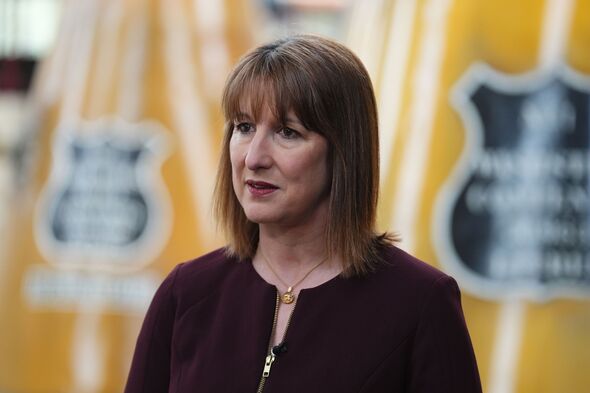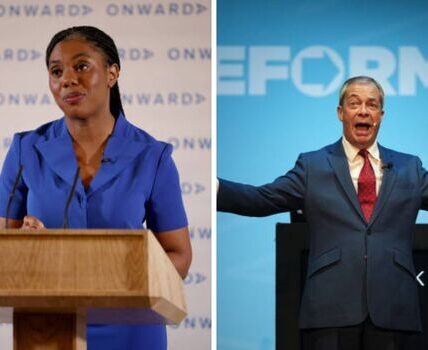The threshold has been frozen since 2021, resulting in millions of the country’s lowest earners paying a larger proportion of their income in tax

The Treasury, run by Chancellor Rachel Reeves will today come under pressure in Parliament over the income tax thresholds (Image: PA)
The Treasury is set to defend its decision not to raise the lowest personal income tax threshold from £12,570 to MPs today (Monday May 12). The threshold has been frozen since 2021, resulting in millions of the country’s lowest earners paying a larger proportion of their income in tax.
A petition urging Chancellor Rachel Reeves to increase the tax threshold has amassed the support of 250,574 signatories. Due to the overwhelming support it has received, the issue will be debated in the House of Commons at 4:30pm today and can be viewed on Parliament TV via this link.
Alan Frost, who initiated the petition, is calling on the government to “Raise the income tax personal allowance from £12,570 to £20,000. We think this would help low earners to get off benefits and allow pensioners a decent income.”
He further argues: “We think it is abhorrent to tax pensioners on their state pension when it is over the personal allowance. We also think raising the personal allowance would lift many low earners out of benefits and inject more cash into the economy creating growth.”
Surpassing the 10,000-signature mark, the petition demanded a Treasury explanation of its position. The Treasury clarified: “The Government is committed to keeping taxes for working people as low as possible while ensuring fiscal responsibility and so, at our first Budget, we decided not to extend the freeze on personal tax thresholds.
“The Government has no plans to increase the Personal Allowance to £20,000. Increasing the Personal Allowance to £20,000 would come at a significant fiscal cost of many billions of pounds per annum.
“This would reduce tax receipts substantially, decreasing funds available for the UK’s hospitals, schools, and other essential public services that we all rely on. It would also undermine the work the Chancellor has done to restore fiscal responsibility and economic stability, which are critical to getting our economy growing and keeping taxes, inflation, and mortgages as low as possible.

Rachel Reeves, UK chancellor of the exchequer, has so far refused to raise the income tax thresholds (Image: Bloomberg, Bloomberg via Getty Images)
“The Government keeps all taxes under review as part of the policy making process. The Chancellor will announce any changes to the tax system at fiscal events in the usual way.”
Taxpayers grappling with soaring living costs are hit by stagnant personal tax allowances. At present, the basic income tax rate of 20% applies to earnings over £12,570.
Those pocketing upwards of £50,270 face a higher rate of 40% – these thresholds have been static since 2021.
The ongoing situation is linked to what’s known as ‘fiscal drag’, a result of the personal income tax allowance remaining static at £12,570 since 2021. For those interested in learning more, the petition can be found here.
At present, individuals begin paying the basic tax rate of 20% on income over £12,570, and enter the 40% higher tax bracket once their earnings exceed £50,270, with both thresholds unchanged since 2021. Financial experts predict that this policy will bring an additional £1.2 billion into the Treasury’s coffers by the end of this freeze in 2028.
This situation, referred to as ‘fiscal drag,’ is pulling more people into the tax net or propelling them into higher tax brackets. Experts warn that keeping the lower threshold puts an unfair burden on those with modest incomes.
Consecutive governments have kept the tax allowance frozen, inadvertently increasing the tax burden on taxpayers. The Office for Budget Responsibility has projected that by the fiscal year 2025/26, due to continuous freezes, approximately an extra 1.3 million people will find themselves liable for income tax, with another million moving into higher tax brackets.
Rachel Reeves announced in last year’s budget review that National Insurance and Income Tax thresholds would remain static until April 2028 across various regions. Esteemed economic analyst Victor Bulmer-Thomas highlighted the potential repercussions of this move in an LSE blog, stating: “The distributional impact of this particular stealth tax may come back to bite the administration that imposed it. The reason is that the impact is much more severe on those on lower incomes than those on higher ones.”
Earlier in the year, a petition urging for the Personal Allowance threshold to be increased to £45,000 elicited a statement from the Treasury, which read: “The Government has no plans to increase the Personal Allowance to £45,000. Increasing the Personal Allowance to £45,000 would come at a significant fiscal cost of many tens of billions of pounds per annum. This would reduce tax receipts substantially, decreasing funds available for the UK’s hospitals, schools, and other essential public services that we all rely on. It would also undermine the work the Chancellor has done to restore fiscal responsibility and economic stability, which are critical to getting our economy growing and keeping taxes, inflation, and mortgages as low as possible.”
Shaun Moore from Quilter, the wealth management company, has spotlighted a severe tax conundrum, stating, “The tax trap between £100,000 and £125,140 is one of the most punishing thresholds in the system. While it is of course a nice problem to have, this is a problem that can stifle ambition as people look for ways to reduce their workload or turn down higher-paid roles for fear of finding themselves in the trap.”
He further explained that parents earning over £100,000 could find themselves worse off, potentially losing tax-free childcare allowances and part of the free care hours provided for three and four year olds.
For those looking to take action, you may sign the petition here.


